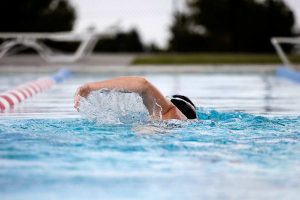
21 Journaling Prompts for Swimmers
Feeling stuck with your journaling? Here are some journaling prompts for swimmers to build self-awareness, confidence, and help swimmers maintain perspective over the course of the swim season.
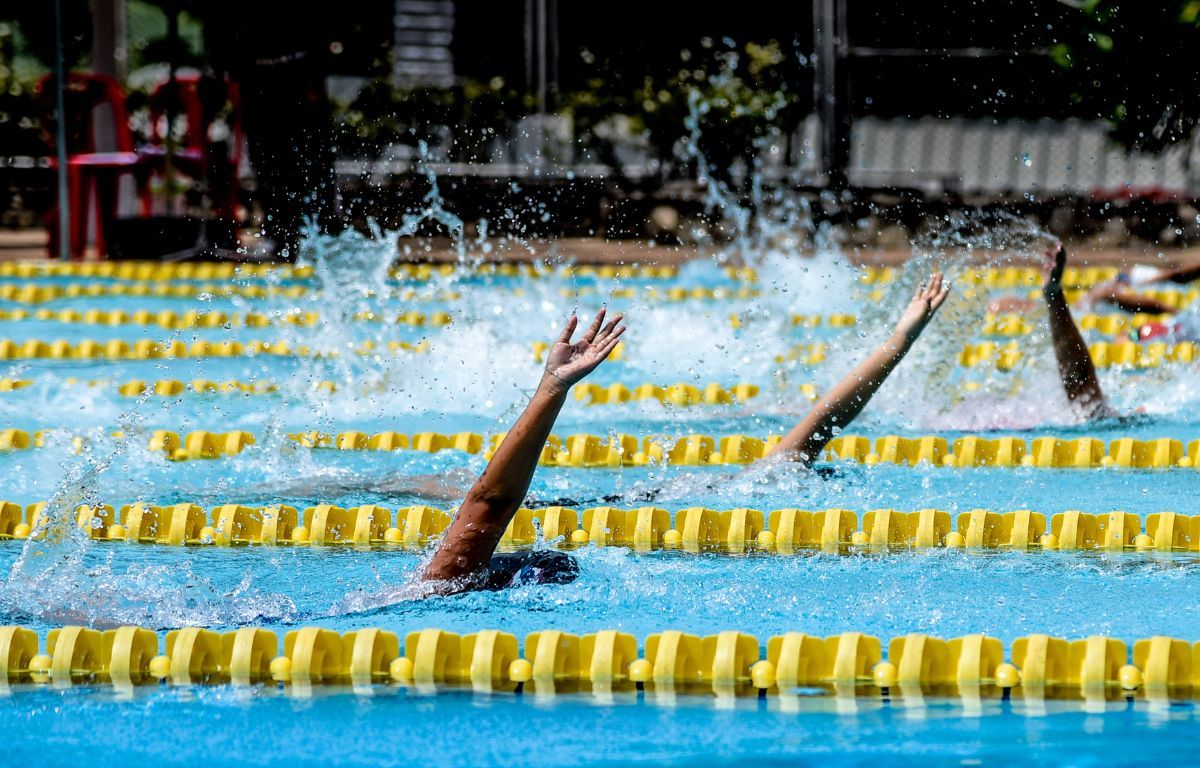
Going to swim practice feeling like a struggle? Here are some proven strategies and tips to conquer today’s swim practice, even though you might not be feeling it.
Even the most committed swimmers in the pool have days when motivation is hard.
Yes, even the Olympic gold medalists, the world champions, the NCAA record-busters…
Like the rest of us swimming mortals, they have moments where the last thing they want to do is hit the pool for swim practice.
On days where the resistance is more resistancey than usual, here are some proven and powerful tips for how to get your butt to the pool and get some high-quality work done in the water.
Small, small goals are the secret sauce to building the momentum necessary to do hard things.
Goals so small that it’s impossible not to say yes.
Especially on days when you just aren’t feeling it.
Here’s how to yes your way to completing a banger of a swim practice:
The more of these little “yes” moments you rack up, the more momentum you build, the more energy you create, and the “easier” it becomes to tackle more difficult stuff in the pool.
Days when we don’t feel like going to swim practice is essentially a negotiation with our worst impulses: to give up, to avoid the hard work, to choose the easy path.
Chasing small yesses is a killer negotiation tactic that saps the power of moments you don’t feel like going to practice.
What do you notice when you compare your mindset before swim practice and before racing at a swim meet?
Well, for most of us, getting fired up to race in competition comes naturally.
After all, we are shaved and tapered, the pressure is on, high-energy tunes are blasting from the PA system, the nerves are firing, and the atmosphere is thick with excellence and personal best times.
In the drowsy moments before a random morning swim practice halfway through the training cycle?
Not so much.
Swimmers tend to view training with a low-intensity mindset. This is fair—approaching each practice with a full-max mindset can be difficult to sustain.
But there are things you can steal from your competitive mindset to help boost your motivation and mindset before those mid-season swim practices.
Things like:
Locking in with a competitive mindset more frequently—and not just saving it for swim meets—helps you become more effective at using it and makes it second nature and more reliable when the pressure is really on.
Lapses in motivation can often result from the double-whammy of feeling sluggish combined with the pressure of not living up to our standards or expectations in the pool.
Another trick for days when you don’t feel like going to training, similar to setting smaller goals, is changing your goals for the swim workout to remove the pressure that can cause motivation to crash.
Instead of focusing on going to the pool and working hard or achieving a specific pace or result, the goal could be swimming with great technique. Subjective goals like “swimming with killer technique” can help remove the motivation-sapping pressure of outcome-based goals and open the door to improved performance.
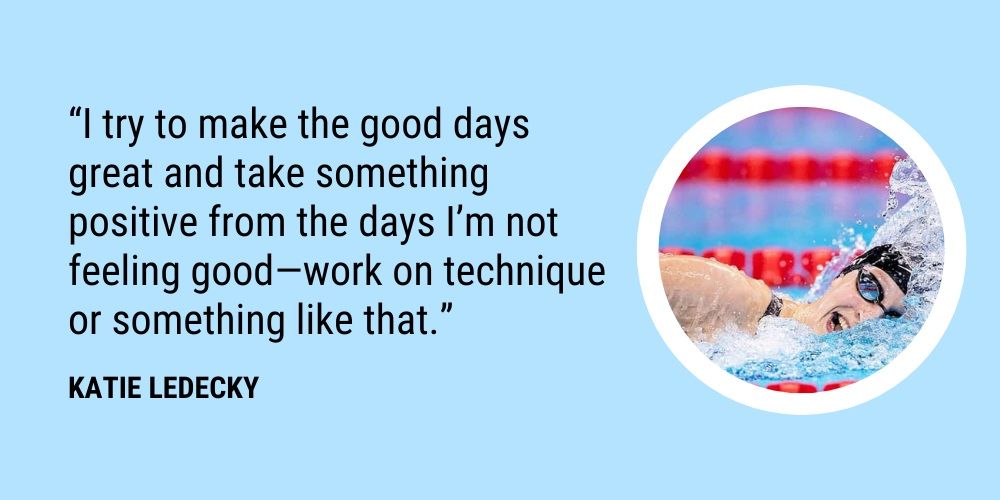
Sounds like a meaningless difference, but managing the perceived effort ahead can help reduce the self-inflicted pressure that generates those feelings of not wanting to train today.
And sneakily enough, when we swim with great technique, fast swimming seems to happen organically.
No, I’m not talking about the pool warm-up. I’m talking about moving around, doing some arm and leg swings, doing some light core work at home, or going for a walk.
Things you can do to generate movement, enhance blood flow, and build physical momentum.
On days when I’m feeling sluggish or unmotivated, I have found a lot of success with warming up at home or in the gym, where I can blast the aforementioned high-BPM playlist and warm up faster (compared to a cold swim pool) and hit the pool warm, both physically and mentally.
Some research backs this up, showing that just three minutes of light exercise can increase energy and motivation.
According to a study published in the Journal of Science and Learning, three minutes of low-intensity aerobic exercise significantly increased feelings of vigor and reduced fatigue compared to a control group that sat on their butts for twenty minutes.
In other words, movement creates motivation and reduces feelings of lethargy, even if it consists of low-intensity movements like walking, arm swings, and other “slow aerobics” exercises.
Build up a light sweat outside the pool, and you’ll find it easier to hit the water on days when you are struggling to get motivated to dive in.
One of the biggest realizations I had as a young athlete was that how I felt before practice was rarely a good prediction of how the swim practice would go.
Even more recently, during the summer, when I committed to doing as many sprint 50s as humanely possible, there were days when I busted out with a surprise breakthrough even though prior to the workout, my mindset was, well, less than awesome.
Showing up, working through those feelings of resistance, and being patient enough to see the workout to completion turned what felt like should be a bad day into a breakthrough day.
It’s crucial that you collect these moments to remind yourself that you don’t have to feel perfect or even great to have a productive swim practice.
(And yet another reason why swimmers should log their swim workouts, including how they felt before and during the workouts so that they can properly contextualize future moments of “not feeling like it.”)
Think back to the times when you weren’t feeling so hot or your mindset wasn’t perfect at the beginning of practice…
And by the end, you’d not only put together a good practice but also surprised yourself with just how much excellence you’d cobbled together even though you weren’t ultra-motivated.
Collect the bad-to-good days, either in a journal or in your logbook, and keep them close for days when you aren’t feeling like training.
Want to zap feelings of not feeling it? Throw some intensity and energy by front-loading your swim workout with high-intensity swimming.
I know, this sounds a little counter-intuitive…
But often, the fastest way through feeling demotivated is to swim through it.
High-intensity exercise can have an almost immediate impact on mood compared to longer, lower-intensity exercise (Vella et al., 2017).
By flooding the body with endorphins and neurotransmitters like dopamine and serotonin, you can shorten your way to “feeling like it” faster than longer, steady-state swimming.
On days when I’m tired and not in the mood to spend 90 minutes in the water, front-loading my workout with high-energy swimming can help me regain my mood and motivation.
You can literally shake off the feelings of demotivation or shoot them with a high-energy laser (Pew! Pew!).
Don’t get me wrong: Long, low, and medium-intensity swimming have their respective benefits. However, they are also fertile ground for swimmers already feeling demotivated to brood further about their perceived lack of enthusiasm.
High-intensity effort swimming requires more focus and your full attention, which can help swimmers move beyond ruminating on feelings of fatigue or feeling demotivated.
Of course, before hammering out full effort, err, efforts in the pool, make sure you always complete a thorough warm-up.
The key thing to remember is that we ALL experience these drops in motivation.
Swimmers, especially, with long, seemingly never-ending seasons and weeks of training where we swim more meters than we drive.
Michael Phelps had days when he didn’t want to train, Caeleb Dressel had days when things didn’t click, and Katie Ledecky even had “bad” days in the pool.
It’s natural. Normal. It’s okay.
Which is the first step in making the best of them when they do happen.
And separate yourself from the swimmers who let those feelings get the best of them.
In sum, you should:
Use these tips and strategies and make the bad days hilariously good.
See you in the water!
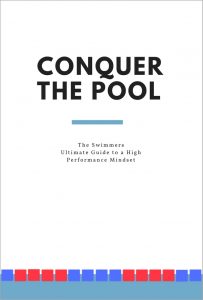
Whether you are tired of choking on race day, want to finally conquer your mindset so that you can give your PB’s the beating they deserve, or want to develop a killer game plan for your mindset, Conquer the Pool is your ticket to faster swimming.
“This is the best book I’ve ever seen concerning mental training.” — Ray Benecki, Head Coach, the FISH Swim Team
Used and trusted by some of the top clubs and swimmers on the planet and written with the feedback of 200+ head coaches, Olympians, former world record holders, and NCAA champions.
Subscribe to the YourSwimLog.com newsletter and get tips and advice on how to swim faster every weekday morning, straight to your inbox.
Join 33,000+ swimmers, coaches, and swim parents learning what it takes to swim like a boss.
Unsubscribe anytime. Email will never be shared or sold.

Olivier Poirier-Leroy Olivier Poirier-Leroy is the founder of YourSwimLog.com. He is an author, former national level swimmer, two-time Olympic Trials qualifier, and swim coach.

Feeling stuck with your journaling? Here are some journaling prompts for swimmers to build self-awareness, confidence, and help swimmers maintain perspective over the course of the swim season.
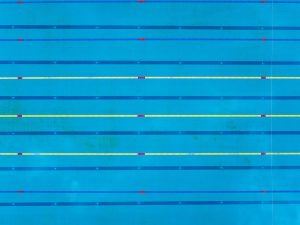
Swimmers invest a lot of time in the water over the course of the season. The two-a-days, long swim meets, and the perpetual sogginess can be difficult to bear for even the most motivated of swimmers. In the moments when you are struggling with commitment or motivation, it’s a great
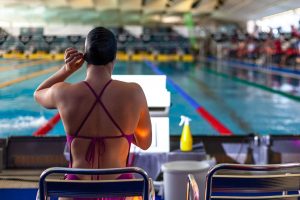
Each day at the pool, you have some decisions to make, weighing the trade-offs. Here’s how to choose faster and better swimming.
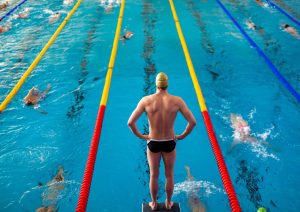
Motivation or some variation of it is by far the most common query I get from readers of my weekly newsletter. “How do I get motivated to work hard?” “How do I get motivated to do the things necessary for my goals?” “Why is it so hard to get motivated
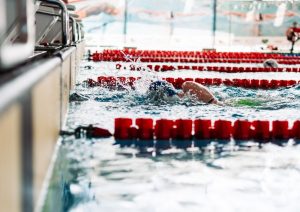
During my noon-hour swim today, my mind wandered back to my age group days. The swimmers I trained with. The swimmers I raced against. My heroes growing up. And the resulting big box of ribbons and medals collecting dust under my bed. Over the years, I realized, I’d learned a
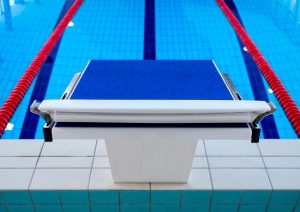
Ryan Murphy is yet another in a long line of American backstroke dynamos. Murphy, who starred at Cal, took over from legends including Naber, Rouse, Berkoff, Grevers, and Peirsol. An NCAA champion, world record holder, and four-time Olympic champion, Murphy has collected a ton of hardware over the years in

LANE 6 PUBLISHING © 2012-2024 · PRIVACY POLICY · RETURN POLICY · TERMS OF SERVICE · AFFILIATE DISCLOSURE